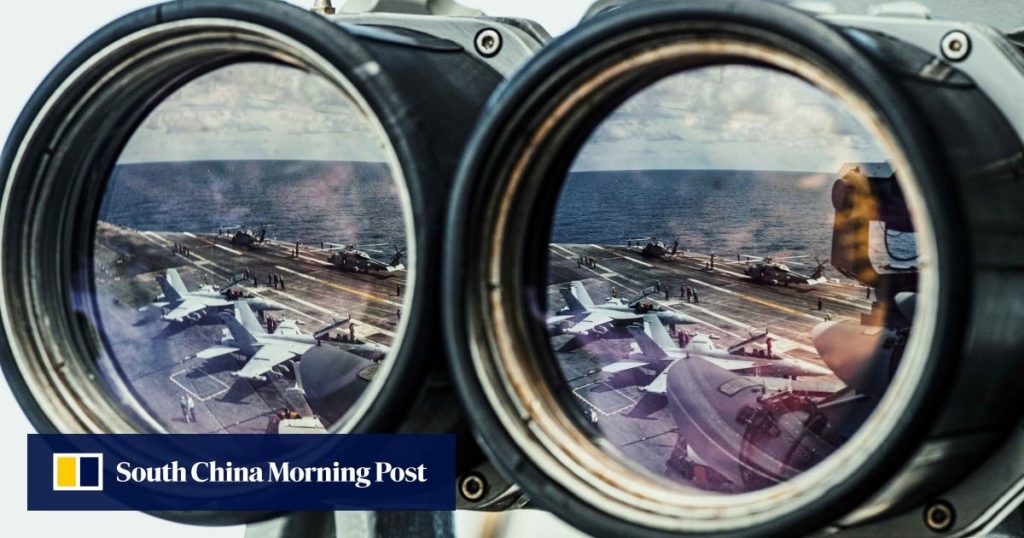Joint authors Eyck Freymann, a fellow at Stanford University’s Hoover Institution, and Harry Halem, a senior fellow at Yorktown Institute in Washington, argued that US military power was dependent on a long, tenuous network of ships, aircraft and supply depots that would be easily targeted by China “in the opening hours of a war”.
“Deterring China requires the US to build up not only frontline combat forces but also its logistical infrastructure,” they said in the article, which appeared on Tuesday. The alternative was that Beijing could win “before a shot is even fired”.
Beijing could force Washington into a costly, draining counter-mobilisation simply by maintaining a high state of military readiness that would wear down the US supply lines, the article said.
The authors cautioned that using forward-deployed forces as a deterrence strategy would be “inviting attack” if they were not backed by robust logistical support, citing Japan’s 1941 attack on Pearl Harbour, when the US fleet was inadequately supplied for sustained combat.
“Today, we risk repeating this mistake on a grander scale, deploying forces without a credible plan to sustain them under fire,” they wrote.


